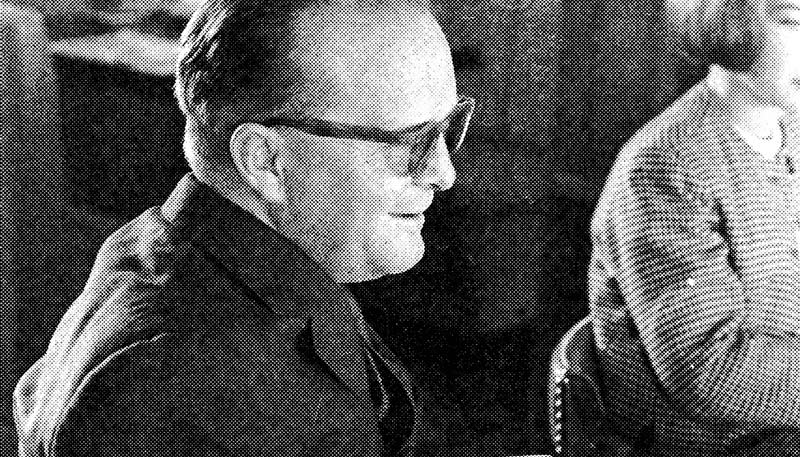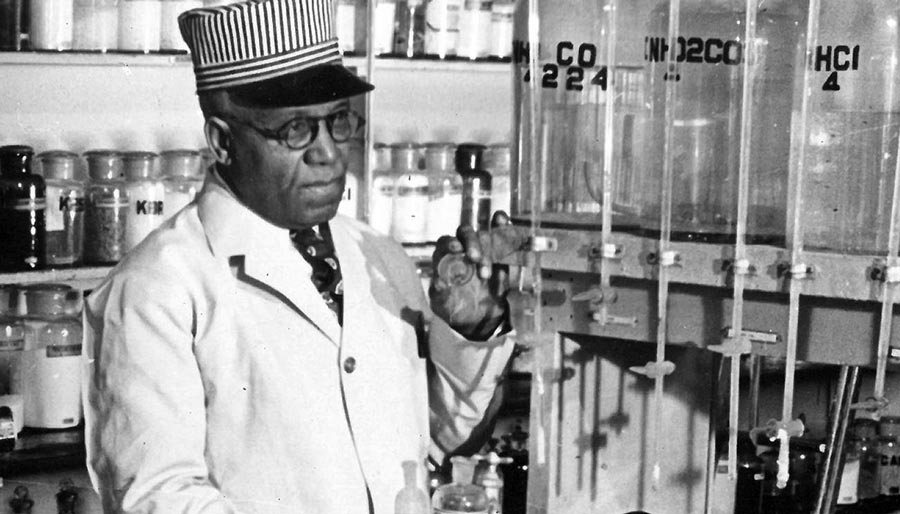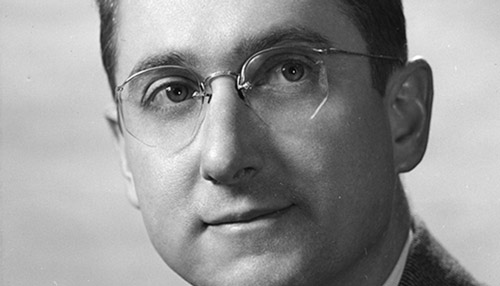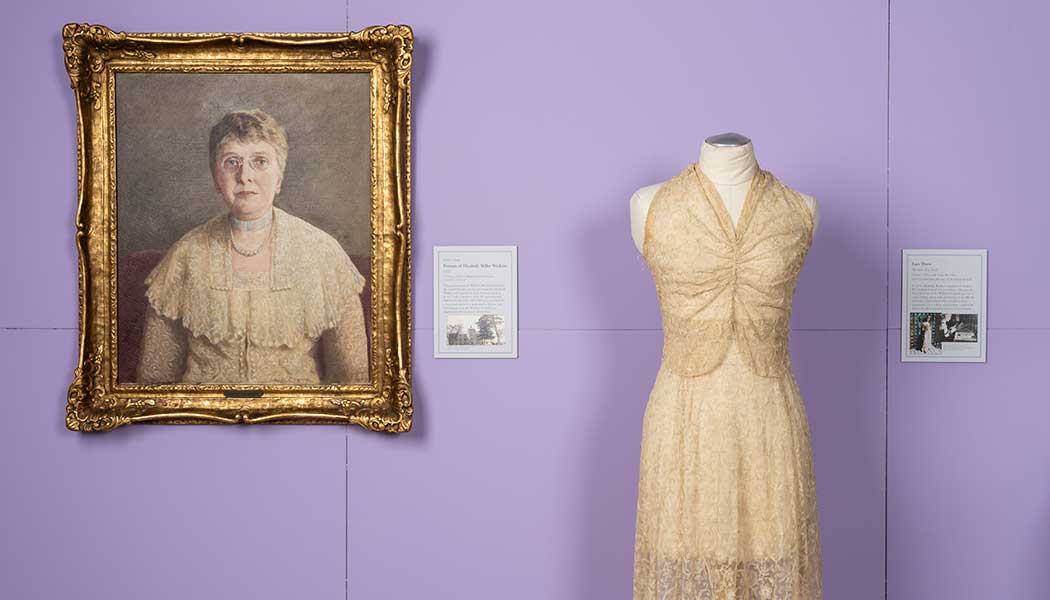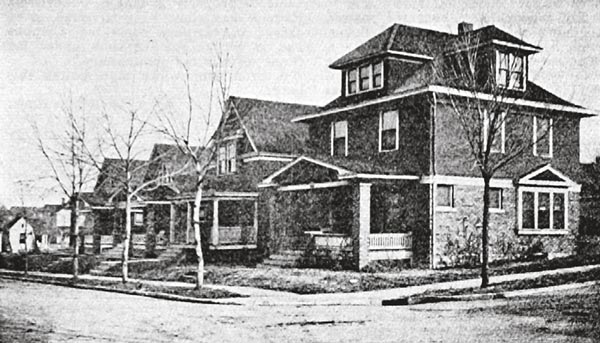Flock forebears: Hannah Oliver
Recent KU honors rekindle memories of ‘joyous soul’ Hannah Oliver.
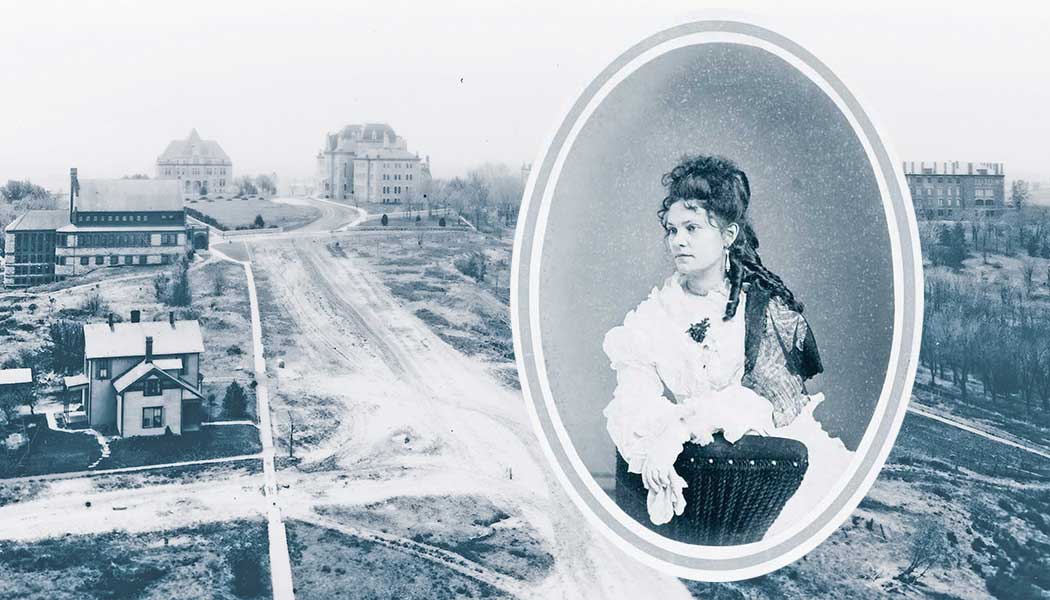
Born in Cornwall, England, in 1852, Hannah Oliver arrived in Lawrence in 1860 and was 11 when Quantrill raided in 1863. She earned her Bachelor of Arts degree as a member of KU’s second graduating class, in 1874, and her master’s in 1888. She joined the faculty in 1890; taught Latin at the University for more than 40 years; served as a member of the Alumni Association’s national Board of Directors from 1887 to 1906; and was a founding member of I.C. Sorosis, later known as Pi Beta Phi, KU’s first sorority, which this spring celebrated 150 years on the Hill. Oliver retired in 1931 as an associate professor.
The department of classics honors her to this day with its annual Hannah Oliver Latin Prize; wider recognition finally arrived in April with her long-overdue induction into the KU Women’s Hall of Fame.
In 1943, the Omicron chapter of Delta Kappa Gamma, a professional society for women educators, honored Oliver, then thought to be KU’s oldest living graduate, with its Pioneer Teacher Award. To appropriately fete her, the group solicited testimonials from colleagues, students and neighbors. These letters, preserved at University Archives in the Spencer Research Library, paint vivid, crimson-and-blue portraits of a beloved teacher, philosopher, naturalist, historian and mentor. For eight decades, from the time she arrived in Lawrence until her death in 1947, Oliver left an indelible mark on the city, campus and everyone she met, from neighbor to peer to freshman to chancellor.
Oliver was a “stimulating” and “patient” teacher who was “alive to all movements for the better of humanity.” She was praised for “kindliness and sincerity,” “beauty of diction,” and her “understanding of and sympathy for youth.” Paul Lawson, g1917, PhD1919, dean of the College of Liberal Arts & Sciences from 1934 to 1954, wrote that Oliver “brought brightness and courage” into his life “at every contact with her.” Chancellor Deane Malott, c1921, recalled his first interaction with Oliver at length: “… the wind was blowing a perfect gale and the thermometer was registering about 108 degrees,” he wrote. When he griped about the weather and the “brown river Kaw,” Oliver would have none of it, Malott recalled: “‘I like this Kansas wind,’ she exclaimed, ‘there is such strength in it,’” and, “‘The brown river Kaw … always reminds me of the richness of the Kansas soil.’”
Given her long history on Mount Oread, it is perhaps no surprise that Oliver was asked to speak on the early history of the state and University at Freshman Initiation, a precursor to Traditions Night, every year from 1925 until 1933. University Archives’ trove of her handwritten speeches—which is where I first encountered Oliver, during my dissertation research into early uses of Memorial Stadium—recalls the hardships, natural beauty, mythical beginnings and national importance of Kansas, Lawrence and KU.
Fred Ellsworth, c1922, the Association’s longtime executive secretary, wrote of Oliver, “This joyous soul will remain a part of Lawrence and the University as definitely as a building of great beauty or a book of rare inspiration.” And yet, outside of the classics department, Oliver, so important to so many for so long, is now largely forgotten.
The Emily Taylor Center for Women & Gender Equity on April 20 helped remedy this by honoring Oliver with its Pioneer Woman Award—recognizing “exemplary Kansas women who have made historic contributions of local or statewide significance”—and induction into the KU Women’s Hall of Fame, bringing her contributions to the KU community back into public view.
In one of my favorite letters on Oliver, E.F. Engel described her as a “prism through which her students saw the white light of knowledge and wisdom in rainbow color.” Oliver was a refraction of Lawrence and KU, her historical memory, personal characteristics and talents dispersing the “historic city with a soul,” to draw from yet another letter, into its spectral parts for her students, colleagues, and now, for us, her fellow alumni.
Howard Graham, g’09, PhD’20, is the Alumni Association’s director of career and professional development.
Photos courtesy of University Archives
/
